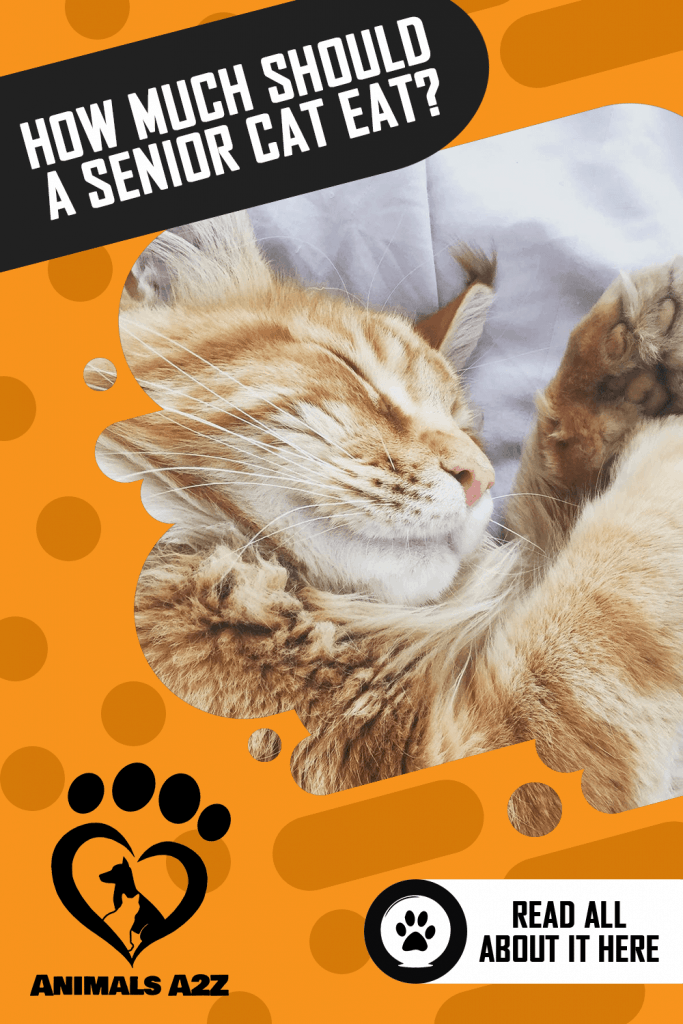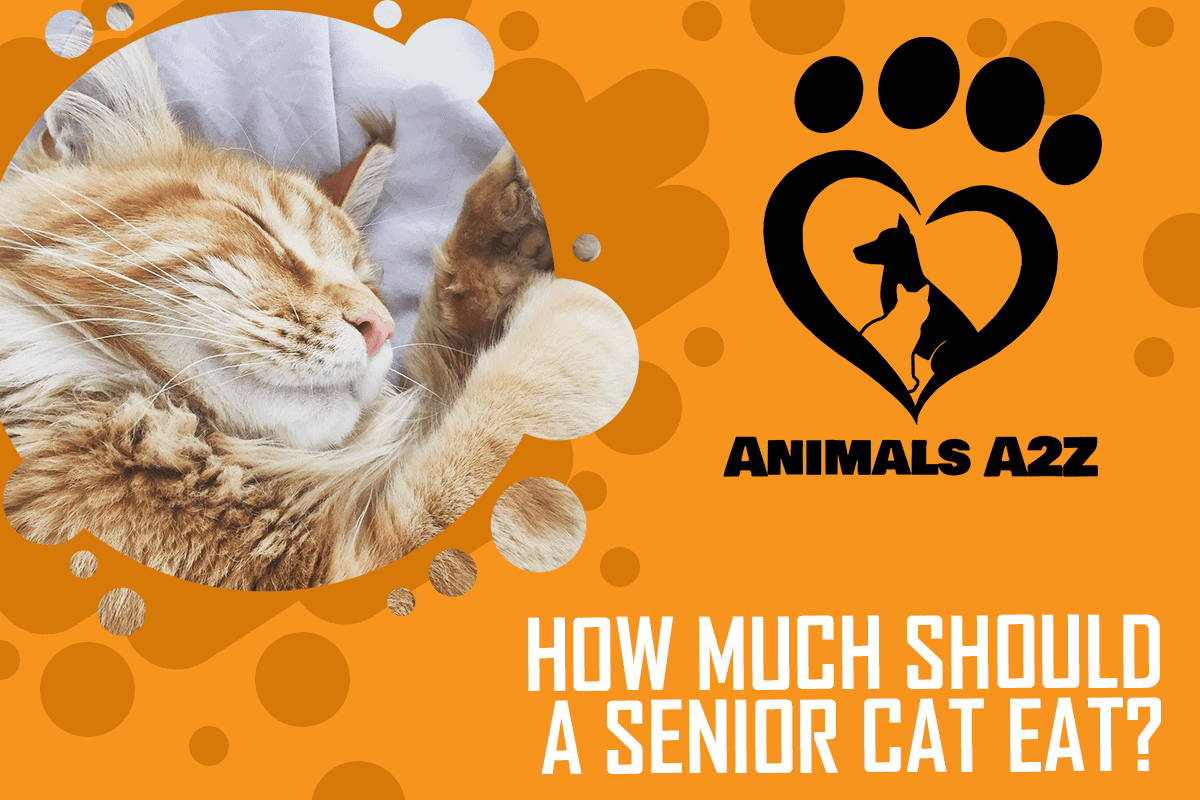A senior cat can have a slower metabolism, spend more time indoors, and become less active. These can all take place because they are putting on more weight. Equally, since aging cats reach their geriatric years, a deduction in their appetite and illness can affect their lifestyle and it will eventually have an impact on their overall health.
Table of Contents
Do cats eat less as they get older?
A senior cat needs between 280 and 360 calories daily if they are healthy. The exact amount an older cat needs depend on their normal lean weight. It might surprise you to hear that some senior cats actually need a higher cat food intake.
- Do senior Cats Need Different Foods
- This is the Signs of Aging Cats
- This is How Often your Senior Cat Should be Feed
What Diet Should You Give Your Aging Cat?
When cats get older, so does their nutritional requirements. As your feline friend will spend roughly about 40% of their senior life, it is very important that you give your cat the right diet in order for him to stay in a healthy and lively state. More than ever, during the senior years of your cat, he has to eat a tasty, and high-quality diet with a careful balance of nutrients and easy-to-digest protein.
A good feline diet can be able to provide a controlled level of fats, high-quality protein, as well as easy-to-digest carbs for energy. Along with proteins, major minerals supporting aging joints and vitamins can also help a lot in supporting your cat’s aging immune system.
Obesity and Senior Cats
Age alone does not change the appetite of a cat or how much food a cat eats, but lifestyle can have a big impact. Naturally, cats are hunters. They capture and stalk prey, and eat whatever meals they catch in a day. Nowadays, on the other hand, many felines are kept indoors where there is not enough room to roam and most of the time, the food bowl is highly accessible whenever they want to eat.
Aside from the more sedentary lifestyle of indoor cats nowadays, then also often given calorie-dense foods. Kibble or dry cat foods are most especially heavy in calorie content. And with the small size of a cat, even a few extra calories per day can add up quickly.
What Should You Feed a Senior Cat?
It is generally advised to move senior cats onto a specially formulated older cat food instead of a normal cat diet as long as they do not have any underlying health conditions or your veterinarian has advised you otherwise.
Furthermore, senior cat foods can also be able to provide high-quality protein and added Vitamin E in order to strengthen the natural defenses of your cat. Most importantly, specialized senior cat food contains lesser calories, which helps your cat to maintain the right body weight since their activity levels drop at this age. It means your cat can still continue to enjoy his mealtimes without comprising his health.
Be aware of this when you feed an older cat
As cats get older, their sense of taste and smell can fade a bit, along with their chewing ability. Softer, smaller pieces can help your aging cat get the most nutrients out of his meals, most particularly if he is suffering from sensitive mouths after losing a few teeth. Aside from that, higher meat content can help improve the flavor and smell of your cat’s food and it becomes more appealing and palatable.
When changing to a new diet, you need to do it slowly. You can start by offering a new and old diet at the same time, slowing building up a proper proportion over one week to 10 days until you’re only feeding your aging cat specialized senior cat food.
Video: How to take care of older cats
Common Questions About How Much Food To Give a Senior Cat
How Much Should A Senior Cat Eat Per Day?
From age 6 months to maturity, most felines will do well when they’re fed at least 2 times per day. When your cat becomes an adult, like about 1 year old, feeding him once or twice per day is recommended in most cases. Also, senior cats like those who are 7 years old and above, must maintain the same feeding routine.
Do Cats Eat Less as They Get Older?
When felines get older, it is normal for their eating habits and appetite to change with time. In fact, some older cats lose interest in cat food they once really loved, while other cats want to eat less often compared to when they were young. However, older cats who are eating well or not eating at all and losing weight can be worrisome.
What is the Best Food for an Older Cat?
Older cats need more taurine. This ingredient is healthy for a cat’s heart and it can be found in proteins like poultry, beef, and fish. Feed older felines a dry cat food that has at least 28% protein and 10% fat, or wet canned food that’s 8% protein and 4% fat. All animals tend to slow down the moment they grow older. Thus, they need lesser fat and fewer calories in their meals.
Conclusion
When talking about your senior cat’s diet, you should follow the feeding guide that comes on the label of specialized senior cat food. But bear in mind that the guides will only give you an idea. Remember that every cat is different, so the most essential thing you should do is to give your cat enough food that can help maintain a healthy and lean body condition.
Make sure to give your cat plenty of fresh, clean water in a large ceramic or metal bowl. Some cats also like to drink water outside, so placing another clean water bowl in your garden may help too.


